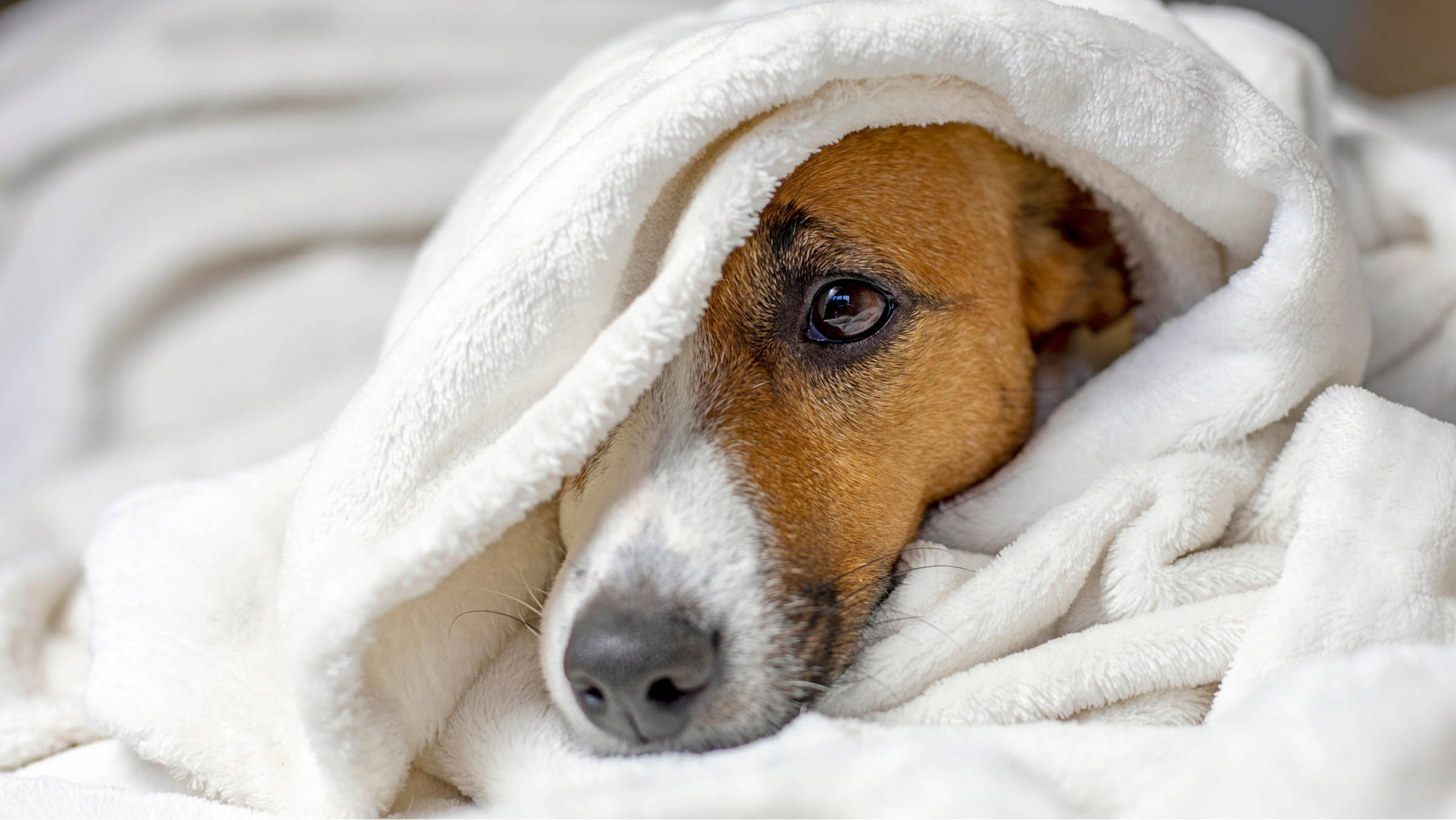
Kennel cough
If your four-legged friend has a barking, dry cough, you may immediately think of kennel cough. The infectious disease is highly contagious and is transmitted very quickly through contact with other dogs (e.g. by sniffing and licking). However, there is usually no cause for concern: even if kennel cough is unpleasant for the animals, it usually runs its course without complications.
However, if you have a puppy or an older, immunocompromised dog, a veterinary examination is absolutely necessary. You should investigate the cause, especially if fatigue or fever are present or the cough lasts for a long time. In this way, targeted treatment can be given and complications avoided.
DEFINITION
What is kennel cough?
Kennel cough (or infectious tracheobronchitis) is a contagious disease of the upper respiratory tract in dogs caused by various viruses and bacteria. In most cases, the disease is transmitted by infected members of the same species. However, dogs can also contract some pathogens from cats. Infection mainly occurs through the air, i.e. via droplet infection, or through contact with contaminated objects such as dog toys or water bowls. The risk of infection of your dog is particularly high if it is in close quarters with several dogs (e.g. in kennels, boarding kennels, veterinary clinics or dog shows, but also on the dog run), hence the term "kennel cough".
The course of the infection in your dog depends on which pathogens cause the disease. On the other hand, the strength of your dog's immune system should not be underestimated. If viruses are responsible for the infection, kennel cough is usually mild and the symptoms subside after around 14 days. It becomes problematic when bacteria attack the respiratory tract as well as viruses. This can lead to so-called secondary infections, which can cause severe, purulent inflammation (e.g. tonsillitis or laryngitis).

SYMPTOMS
How do I recognize kennel cough?
The first symptoms of kennel cough appear around 2 to 10 days after infection, depending on the pathogen. You should look out for the following signs in your dog:
- Dry, barking cough
(often paroxysmal during exertion and stress), sometimes spasmodic and with a strong gag reflex - Difficulty breathing
- Nasal discharge
- Conjunctivitis with purulent, watery eyes
- Loss of appetite
- Increased need for rest
In severe cases, especially those with secondary infections, your dog may also develop a fever and inflammation of the throat, tonsils and trachea.
Important to know: Your dog is no longer contagious until it has shown no symptoms for seven days after infection. Therefore avoid contact with other dogs for a few days after infection to prevent them from getting infected.
CAUSES
What causes kennel cough?
Kennel cough can be caused by various viruses and bacteria, depending on the region you live in. In most cases, several pathogens are involved. These include:
- Canine parainfluenza virus
- Canine reovirus
- Canine adenovirus
- Canine herpes virus
- Bordetella bronchiseptica
DIAGNOSIS
Examination and diagnosis of kennel cough
Your veterinarian can usually diagnose kennel cough based on the typical cough and your dog's medical history. Did it have contact with other dogs in close quarters shortly before the outbreak of the disease, for example at dog school or kennels? Then infection is likely.
Depending on the course of the disease, the veterinarian can use a nasal or throat swab to detect the pathogen in your dog. This is particularly useful for secondary bacterial infections. An antibiogram then helps to select the right antibiotic.
Good to know
First of all, make sure that your dog is isolated from other dogs and cats to prevent infection. It is best to mention the suspicion of kennel cough by telephone before visiting the veterinary practice. This will prevent other animals from becoming infected on site.
TREATMENT
How is kennel cough treated?
As the disease is usually caused by viruses, treatment is initially limited to symptomatic treatment. Exceptions are complications such as secondary bacterial infections, fever or loss of appetite. If necessary, your veterinarian will give your four-legged friend targeted antibiotic treatment. If your dog has an elevated temperature, they will be given antipyretics and, if they have a strong urge to cough, cough-relieving medication. Natural veterinary medicines are also a good way of effectively treating respiratory diseases. Eye ointments or drops can help with irritated conjunctiva and eye discharge.
Tips for at home
Heel Vet
If you want to support your dog, consider the natural veterinary medicines from Heel Vet.
PREVENTION
Prevention of kennel cough in dogs
The following measures help to prevent infection with kennel cough:
- A strong immune system is the best way to ward off infections. A balanced diet, sufficient exercise and regular rest periods keep the immune system intact.
- Vaccinations can help protect your dog from kennel cough. There is a combined vaccination against two of the main pathogens (please check what is available in your country). It is particularly recommended for dogs with an increased risk of infection. Your veterinarian can advise you on this.
- Avoid crowded areas (e.g. dog parks or dog schools) where there is an increased risk of infection. This is especially true for dogs that have an underlying disease or are particularly susceptible.
- Avoid contact with infected dogs, as the disease is highly contagious.
- Cleanliness and hygiene in the kennel or living area reduces the risk of contamination. Wash your hands regularly, especially after contact with other dogs, to minimize the spread of pathogens.
- Reducing stress has a positive effect on your dog's immune system.








